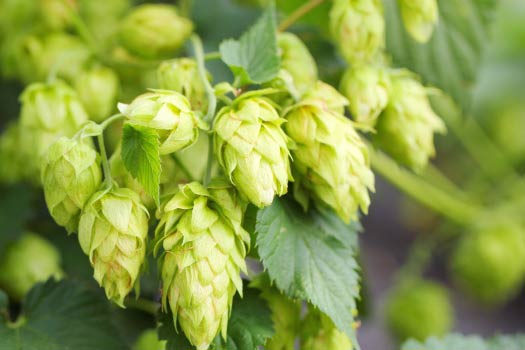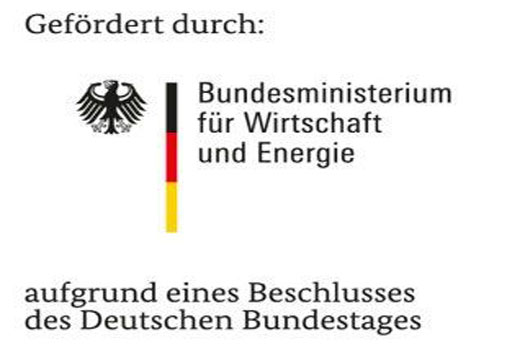Microbes limit the shelf-life of sausage products and are a risk for food safety

The microbial spoiling of cured and sliced cooked sausage products, packaged under a vacuum or modified gas atmosphere, is chiefly caused by psychrotrophic lactic acid bacteria (Borch et al. 1996). The spoiling is manifested by off-odors/off-tastes, discoloration, and slime formation. It is known that nitrite curing salts have a marked antimicrobial effect against anaerobic clostridia. In contrast, they have only a slight effect on the growth of various other microorganisms that cause food spoiling belonging to the Lactobacillus, Leuconostoc, Weissella, and Carnobacterium genera (Kroeckel 2008).
In addition, there is a risk to consumers due to the possible contamination with zoonotic agents such as Listeria monocytogenes. Listeria are a particular risk for ready-to-eat sausage products due to their specific nature as psychrotrophic, facultative anaerobic bacteria, their relatively high tolerance to external influences, and their ubiquitous presence. Listeria are known to be able to readily propagate on packaged ready-to-eat sliced meats having a relatively long shelf-life. The consequence is recall of contaminated products due to the presence of Listeria monocytogenes. Alternative approaches are needed to guarantee satisfactory shelf-life and safety for ready-to-eat sausage products.
Beta acids from hop plants have a powerful antimicrobial effect
The beta acids in hop plants possess antimicrobial activity against gram-positive bacteria such as lactic acid bacteria, listeria, and clostridia. In contrast to the alpha acids used in beer manufacture, beta acids are essentially a byproduct of hops processing. The antimicrobial effect of beta acids is higher than that of the alpha acids and the bitter taste is less pronounced. Our own studies have shown that listeria growth is suppressed by concentrations of less than 10µg/ml of a commercially available hop extract. It is also known that the antimicrobial effect of beta acids is intensified in slightly acidic media and when cooled (Kramer et al. 2015) and this is beneficial for use in foods such as sausage products.
Hop extracts suppress listeria growth in sausage products
The IGF project entitled Stabilization of sausage products and cooked ham using hop extracts was studying the use of beta acid rich hop extracts in cold cuts for microbiological and a possible chemical preservation of the products. Different manufacturing processes were applied (lean sausage and all-in sausage process). Microbiological test series and storage tests in order to evaluate the quality of packaged sliced products under typical retail conditions provided the knowledge for subsequent industrial implementation.
The strong antimicrobial effect of a in beta acid rich hop extract (BRHE) against gram-positive bacteria such as Listeria monocytogenes, Lactobacillus sakei and Clostridium sporogenes was demonstrated in vitro. Particularly with regard to the specific conditions of cured sausage products, it has been shown that the beta-acid-rich hop extract used can in principle be regarded as an additional component of the hurdle concept. This is due to its increased antimicrobial effect when combined with established technological hurdles such as reduced water activity, lowered pH or the use of modified atmosphere packaging. Overall, it was demonstrated that under conditions common for packed sliced sausages, a concentration of 0.2μg/ml is sufficient for complete growth inhibition of Listeria monocytogenes.
Based on the results of the in vitro experiments, the beta acid rich hop extract was added to a standard recipe of a cured boiled sausage (bologna). Both, the all-in sausage meat process as well as the lean sausage meat process were equally applicable. However, the storage conditions of the sliced sausages had a decisive influence on the effect of the hop extract against Listeria monocytogenes. In the case of storage under modified gas atmosphere (20% CO2 / 80% N2), a complete inhibition of L. monocytogenes was achieved with 0.8g BRHE/kg sausage. The antimicrobial effect of the beta acid rich hop extract was also demonstrated against the widespread spoilage bacteria Lactobacillus sakei, where 0.8g/kg sausage was sufficient for complete growth inhibition.
Hop extracts as natural preservatives for clean labeling
The results of the present study revealed that beta acid rich hop extracts are a natural approach for enhancing the microbiological safety of foods such as cured boiled sausages. Their high effectiveness in relatively low concentrations make them suitable for industrial application. Furthermore, it is expected that hop extracts will be well accepted by consumers in meat products given its long history in brewing, its natural character as well as the health promoting reputation. However, hop extracts have not been approved in the EU as a food preservative.
___________________________________________________
Borch, E., Kant-Muermans, M. L., & Blixt, Y. (1996). Bacterial spoilage of meat and cured meat products. International journal of food microbiology, 33(1), 103-120.
Kramer, B., Thielmann, J., Hickisch, A., Muranyi, P., Wunderlich, J., & Hauser, C. (2015). Antimicrobial activity of hop extracts against foodborne pathogens for meat applications. Journal of applied microbiology, 118(3), 648-657.
Lothar Kroeckel (2008). Microbiological quality of prepackaged sliced deli meats - Current studies, Fleischwirtschaft -Frankfurt- 88(11):112-116.
___________________________________________________
Two papers were published as part of the project:
Kramer, B., Warschat, D., Muranyi, P. (2021) Einsatz von Hopfenextrakt in Brühwurst zur Hemmung von Listerien, Fleischwirtschaft, 101, 7, 192-195.
Kramer et al. (2021) Inhibition of Listeria monocytogenes on bologna by a beta acid rich hop extract, Food Control, 126, Art. 108040
Project term: |
2019 to 2021 |
Project management/ funding: |
Arbeitsgemeinschaft industrieller Forschung AiF (via Industrievereinigung für Lebensmitteltechnologie und Verpackung e. V. - IVLV) / Federal Ministry of Economics and Energy BMWi |
IGF funding code: |
20795 N |
 Fraunhofer Institute for Process Engineering and Packaging IVV
Fraunhofer Institute for Process Engineering and Packaging IVV

